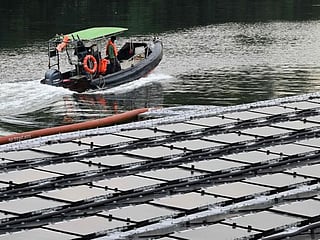UN finds 'no adverse health effects' from Fukushima disaster
Latest report firms up 2013 research on the effects of radiation from the accident

Vienna: Japan's 2011 Fukushima nuclear disaster has not harmed the health of local residents 10 years on, according to a report published Tuesday by UN researchers.
Since the last report in 2013 "no adverse health effects among Fukushima residents have been documented that could be directly attributed to radiation exposure from the accident", said Gillian Hirth, chairwoman of the UN's Scientific Committee on the Effects of Atomic Radiation (UNSCEAR).
In a statement, the UN said the latest report had firmed up the 2013 research on the effects of radiation from the accident.
UNSCEAR said that a sharply higher rate of thyroid cancers detected among children exposed to the radiation was likely due to better diagnostics.
A magnitude 9.0 earthquake and a tsunami triggered the Fukushima disaster, which released large amounts of radiation into the air, earth and water around the nuclear power plant 220 kilometres northeast of Tokyo.
Around 100,000 people had to flee their homes and 19,000 were killed in the disaster.
Fukushima was the worst nuclear accident since the 1986 Chernobyl disaster in Ukraine, where larger numbers of thyroid cancers were also detected.
Sign up for the Daily Briefing
Get the latest news and updates straight to your inbox









